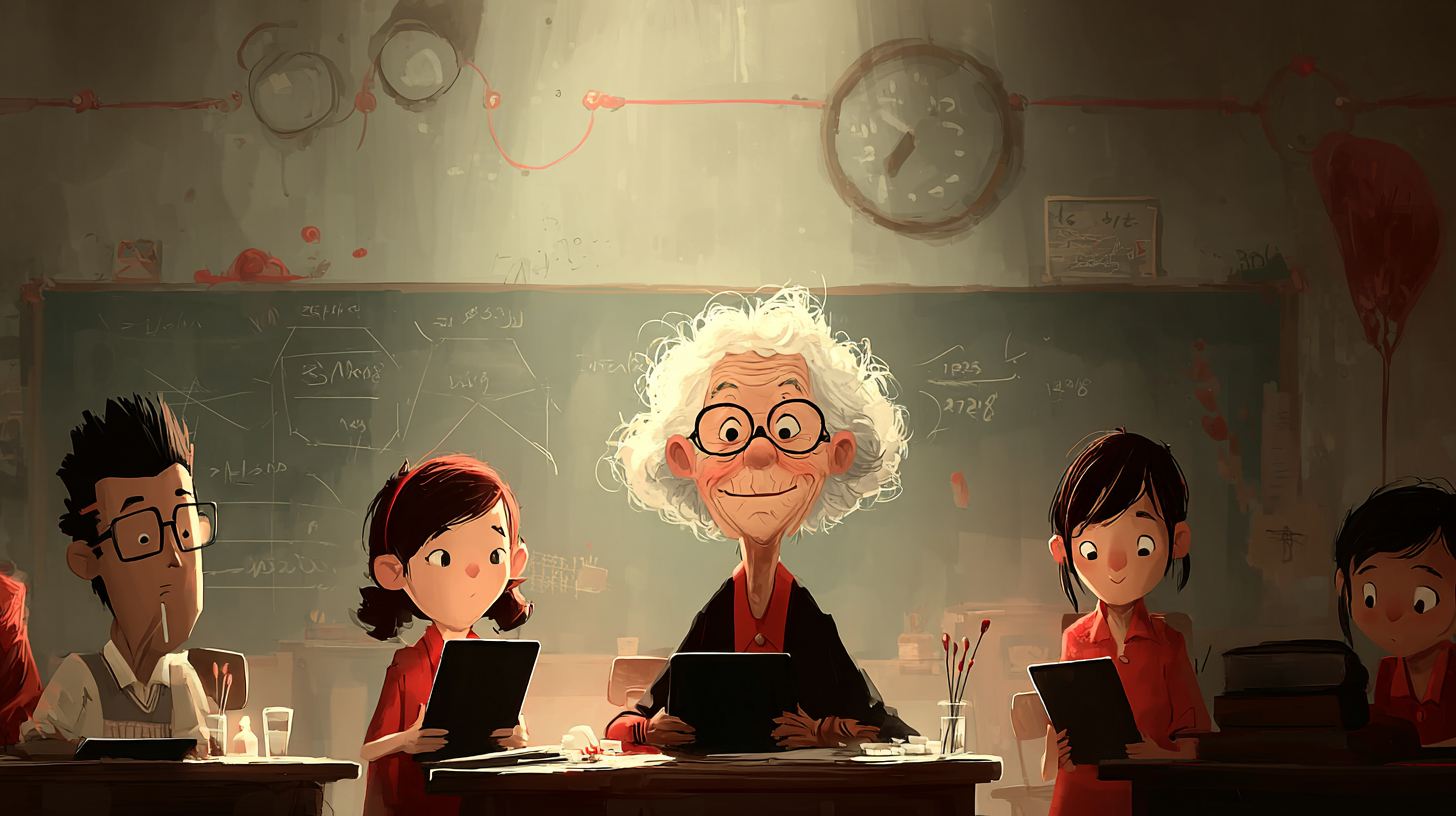“Evolution” means a slow change or improvement over time.
「evolution」は、時間をかけて少しずつ変わったり、よくなったりすることを意味します。
以下は英単語 “evolution” に関するストーリー型学習コンテンツです。まずは大枠の意味を理解して最後の文章で確認しましょう。
主な意味(main meaning)
| 品詞 | 意味 | 発音記号 | 英語例文 |
|---|---|---|---|
| 名詞 | ゆっくりとした変化や発展 | /ˌɛvəˈluːʃən/ | The evolution of smartphones has changed how we live. |
語源(etymology)
語源:ラテン語「evolutio(巻き戻す、広がる)」から
イメージ:何かが少しずつ開いて成長していく様子
類義語(synonyms)
| 類義語 | 英語例文 |
|---|---|
| development | The development of the internet has transformed communication. |
| growth | The company showed strong growth last year. |
| progress | Medical progress has saved many lives. |
| advancement | Technology advancement is very fast. |
| transformation | Her transformation after moving abroad was amazing. |
反義語(antonyms)
| 反義語 | 英語例文 |
|---|---|
| stagnation | Economic stagnation is a serious problem. |
| decline | The decline of the old factory was sad to see. |
コロケーション(collocations)
| コロケーション | 英語例文 |
|---|---|
| human evolution | Scientists study human evolution to learn about our past. |
| cultural evolution | Cultural evolution takes place over many generations. |
| theory of evolution | Darwin’s theory of evolution changed science forever. |
| biological evolution | Biological evolution explains how species change. |
| slow evolution | Language is shaped by slow evolution over centuries. |
2項表現(binomials)
| 2項表現 | 英語例文 |
|---|---|
| trial and error | Evolution often works through trial and error. |
| growth and development | Evolution includes both growth and development. |
英語ストーリー(english story)
Title: From Chalkboards to Smartboards
In a small town school, Mr. Tanaka had been teaching science for over 30 years. When he started, he used only chalkboards and books. Students took notes by hand, and they did most of their learning through reading and writing.
However, over the years, the school went through a slow evolution. It began with a simple advancement—they installed a computer in the teachers’ office. Then, classrooms were equipped with projectors and the internet. Mr. Tanaka had to go through a period of trial and error, learning how to use these new tools.
The growth and development of technology in the school changed the way students learned. Instead of copying notes from the board, students began watching videos and doing online experiments. This transformation in teaching helped many students enjoy science more.
Some teachers were afraid of this progress, thinking it would make their job harder. But Mr. Tanaka saw it as an opportunity. He studied the theory of evolution in his lessons, comparing it to the cultural evolution of education. “Just like humans,” he said, “schools must change to survive.”
Looking back, he realized the school had avoided stagnation by accepting change. He was proud of how far they had come. The days of chalkboards were over, but the love for learning had only grown stronger.
和訳
タイトル:黒板からスマートボードへ
小さな町の学校で、田中先生は30年以上理科を教えてきました。彼が教え始めた頃は、黒板と教科書だけが頼りで、生徒たちは手でノートを取り、本を読んで勉強していました。
しかし、年月とともに学校はゆっくりと**進化(evolution)していきました。最初の進歩(advancement)は、職員室にコンピューターが設置されたことでした。次に、教室にはプロジェクターとインターネットが導入されました。田中先生は、新しい道具を使うのに試行錯誤(trial and error)**の時期を経験しました。
学校の**成長と発展(growth and development)は、生徒たちの学び方を大きく変えました。黒板の文字を写す代わりに、生徒たちは動画を見たり、オンライン実験を行ったりするようになりました。このような変化(transformation)**によって、多くの生徒が理科をより楽しめるようになりました。
一部の教師はこの**進歩(progress)を恐れていましたが、田中先生はそれをチャンスだと考えました。彼は授業で進化論(theory of evolution)を教えながら、教育の文化的進化(cultural evolution)**と比べました。「人間と同じように、学校も生き残るために変わらなければならない」と彼は言いました。
振り返ってみると、学校は変化を受け入れることで**停滞(stagnation)**を避けていたのだと気づきました。彼はこれまでの歩みを誇りに思っていました。黒板の時代は終わりましたが、学びへの情熱はより強くなっていたのです。
Q&A
- Q「evolution」と「development」はどう違うの?
- A
どちらも「発展」「進歩」を意味しますが、「evolution」は自然にゆっくりとした変化を表すのに対し、「development」は計画的または人の手による発展も含みます。たとえば、都市開発は「development」、生物の進化は「evolution」が使われます。
- Q「evolution」と「growth」の違いは?
- A
「growth」は主に「大きくなる」こと、数や量の増加に注目します。一方で「evolution」は「質的な変化」や「形の変化」など、もっと複雑な進化を表します。赤ちゃんの体の成長は「growth」、言語の進化は「evolution」です。
- Q「evolution」と「progress」はどう違う?
- A
「progress」は「前向きな進歩」や「前進」を強調しますが、「evolution」は良いか悪いかに関わらず「変化そのもの」に焦点を当てます。「progress」はポジティブな意味で使われることが多いです。
- Q「evolution」と「advancement」はどう違う?
- A
「advancement」はキャリアや技術など、特定の分野での「前進」や「昇進」などを表します。計画的で目的に向かった進歩を指しますが、「evolution」はもっと自然でゆっくりした変化です。
- Q「evolution」と「transformation」の違いは?
- A
「transformation」は「大きな変化」や「形がガラッと変わること」を意味します。一方、「evolution」はもっと時間をかけて徐々に変化することを表します。たとえば、服装の急な変化は「transformation」、社会の価値観の変化は「evolution」が合います。
- Q「evolution」と「stagnation」の関係は?
- A
「stagnation(停滞)」は「evolution(進化)」の反対で、変化がなく止まっている状態を指します。進化がないことで成長が止まるという点で対比されます。
- Q「evolution」と「decline」はどう違うの?
- A
「decline」は「衰退」「減少」を意味し、物事が悪い方向に向かう変化です。一方で「evolution」は良くも悪くも「変化そのもの」を表す中立的な言葉です。
- Q「human evolution」と「biological evolution」の違いは?
- A
「human evolution」は人類の進化に特化した表現で、「biological evolution」はすべての生物の進化を指します。人間だけでなく、動植物の変化も含む場合は「biological evolution」を使います。
- Q「cultural evolution」と「biological evolution」の違いは?
- A
「cultural evolution」は習慣や価値観、社会制度など文化的な変化を指し、「biological evolution」は身体的・遺伝的な変化を表します。たとえば、スマホを使う習慣の変化は「cultural evolution」、手の形が変わるようなことは「biological evolution」です。
- Q「slow evolution」と「transformation」の違いは?
- A
「slow evolution」は時間をかけて少しずつ変わることを意味し、「transformation」は短期間で大きく変わることを意味します。じわじわ変わるのが前者、劇的に変わるのが後者です。



コメント